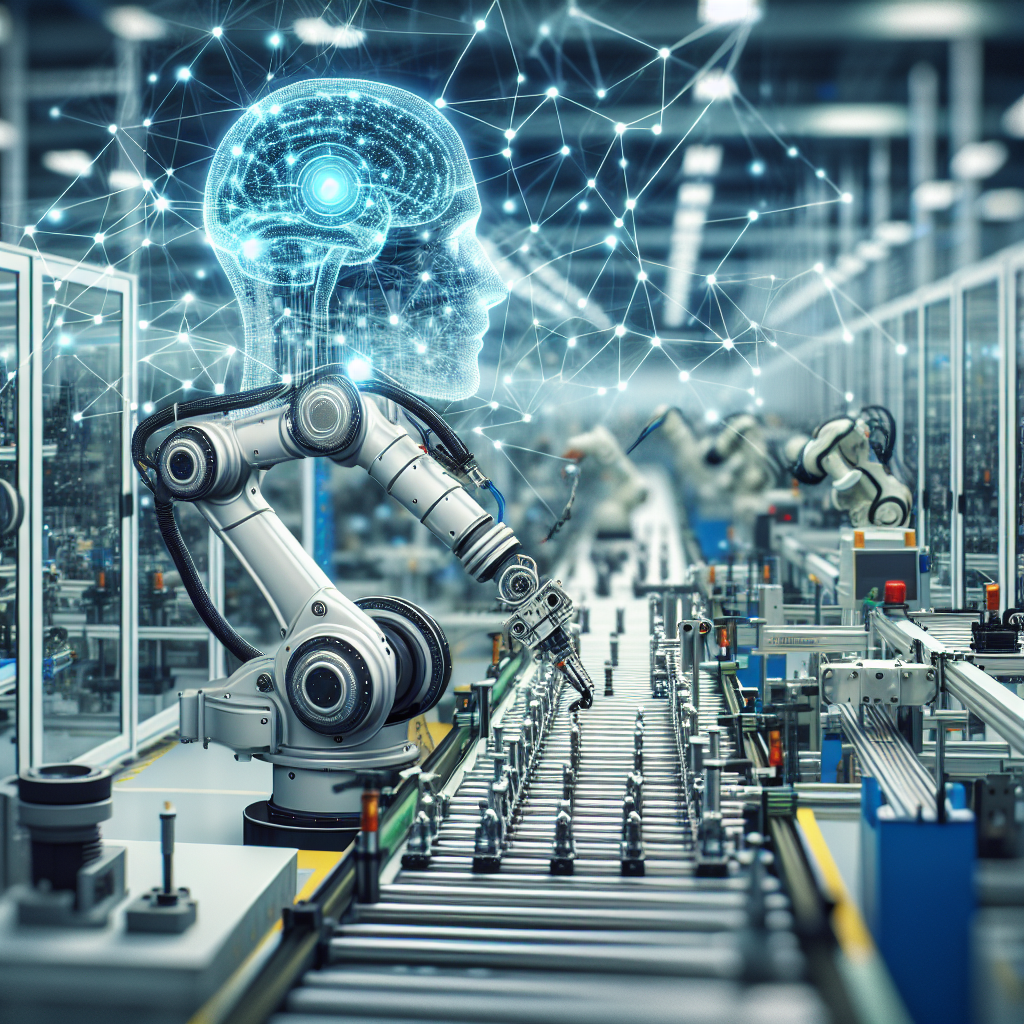The Role of AI Automation in Improving Efficiency in Manufacturing
In recent years, the manufacturing industry has seen a significant shift towards automation and the use of artificial intelligence (AI) to improve efficiency and productivity. AI automation is revolutionizing the way products are made, making processes faster, more accurate, and more cost-effective. In this article, we will explore the role of AI automation in improving efficiency in manufacturing and how it is transforming the industry.
What is AI Automation in Manufacturing?
AI automation in manufacturing refers to the use of artificial intelligence technologies to automate and optimize various processes in the manufacturing industry. This includes tasks such as production planning, quality control, predictive maintenance, inventory management, and more. AI automation can be applied to both traditional manufacturing processes as well as advanced manufacturing technologies such as additive manufacturing and robotics.
AI automation uses algorithms and machine learning techniques to analyze data, make decisions, and take actions without human intervention. This allows manufacturers to streamline their operations, reduce costs, and improve overall efficiency. By leveraging AI automation, manufacturers can achieve higher levels of productivity, quality, and flexibility in their production processes.
The Role of AI Automation in Improving Efficiency
AI automation plays a crucial role in improving efficiency in manufacturing in several ways:
1. Predictive Maintenance: AI automation can analyze real-time data from sensors and other sources to predict when equipment is likely to fail. By identifying potential issues before they occur, manufacturers can schedule maintenance proactively, minimizing downtime and reducing the risk of costly breakdowns.
2. Production Planning: AI automation can optimize production schedules based on demand forecasts, resource availability, and other factors. This allows manufacturers to maximize production efficiency, minimize lead times, and reduce inventory levels.
3. Quality Control: AI automation can inspect products in real-time using computer vision and other technologies to detect defects and anomalies. This ensures that only high-quality products are delivered to customers, reducing the risk of recalls and rework.
4. Inventory Management: AI automation can analyze historical data and demand forecasts to optimize inventory levels and reduce stockouts. By maintaining the right balance of inventory, manufacturers can minimize carrying costs and improve cash flow.
5. Supply Chain Optimization: AI automation can optimize supply chain processes such as sourcing, transportation, and warehousing to reduce lead times, lower costs, and improve reliability. This allows manufacturers to respond quickly to changes in demand and market conditions.
Overall, AI automation enables manufacturers to operate more efficiently, respond faster to customer needs, and stay competitive in an increasingly complex and dynamic market environment.
FAQs
Q: What are the benefits of AI automation in manufacturing?
A: AI automation in manufacturing offers numerous benefits, including increased productivity, improved quality, reduced costs, faster time-to-market, and enhanced flexibility.
Q: How can manufacturers implement AI automation?
A: Manufacturers can implement AI automation by investing in AI technologies, integrating them into existing systems, training employees on how to use them, and continuously monitoring and optimizing performance.
Q: What are some examples of AI automation in manufacturing?
A: Some examples of AI automation in manufacturing include predictive maintenance systems, automated production planning tools, quality control systems using computer vision, and autonomous robots for material handling.
Q: What are the challenges of implementing AI automation in manufacturing?
A: Some challenges of implementing AI automation in manufacturing include the high costs of technology adoption, the need for specialized skills and training, data privacy and security concerns, and resistance to change from employees.
Q: How can manufacturers measure the impact of AI automation on efficiency?
A: Manufacturers can measure the impact of AI automation on efficiency by tracking key performance indicators such as production output, quality levels, downtime, lead times, and inventory levels before and after implementing AI technologies.
In conclusion, AI automation is playing a crucial role in improving efficiency in manufacturing by optimizing processes, reducing costs, and enhancing productivity. By harnessing the power of AI technologies, manufacturers can stay ahead of the competition, meet customer demands, and drive growth in the industry.

